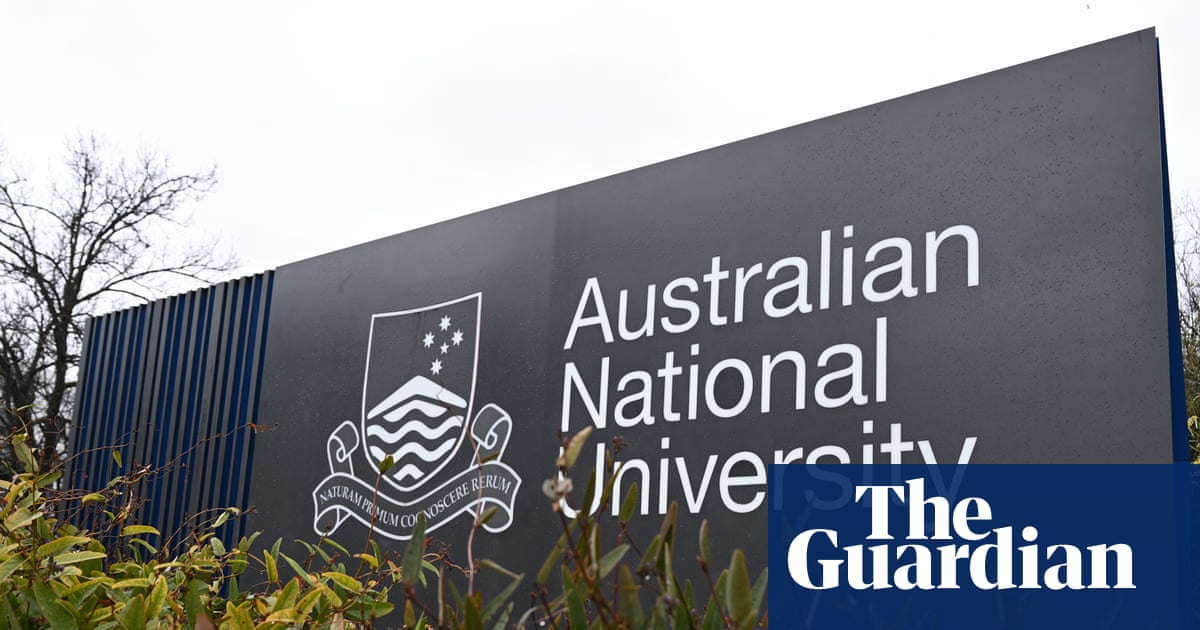
The Australian National University bought $138,000 worth of shares in Israel’s largest weapons manufacturer in March, despite an earlier pledge to not invest in controversial arms companies.
The investments in Elbit Systems were made 12 days after Israel shattered a pause in hostilities with airstrikes that killed more than 400 people in Gaza. At the time, Israel’s prime minister, Benjamin Netanyahu, had warned the renewed military offensive was “only the beginning”.
Elbit Systems is the Israel Defense Forces’ largest contractor and describes itself as the “backbone” of the IDF’s drone fleet, which has been used extensively in the military assault on Gaza.
Sign up: AU Breaking News email
Monthly investment reports obtained under freedom of information laws confirm the ANU bought 225 shares in Elbit Systems – at a value of $138,086 – on 31 March.
An ANU spokesperson told Guardian Australia on Tuesday that the shares were sold on 5 May, but did not explain why.
On 31 March, Elbit Systems shares were trading at US$380.25 (A$608.82). By 5 May, the price had risen by 5.7%, to US$402 ($643.64).
This suggests the ANU made a profit of around US$7,870 (A$12,601) when the shares were sold.
The value of Elbit Systems shares has skyrocketed in recent years due to increased demand for its weapons and the conflict in Gaza.
In April 2024, Australian aid worker Zomi Frankcom was killed while working in Gaza by an Israeli drone strike. Israeli defence sources told the newspaper Haaretz the missiles were fired from a Hermes 450 drone, which is produced by Elbit Systems.
Four months later, in response to sustained pressure from pro-Palestine activists on campus over the war, the ANU announced a change to its investment principles to avoid “controversial weapons companies”.
This prevented investment in companies linked to anti-personnel mines, cluster munitions, chemical weapons, biological weapons and nuclear weapons.
But the change did not prevent the ANU from investing in Elbit Systems, which has extensive ties to the Australian military and the government’s sovereign wealth fund.
It also did not stop the ANU increasing its position in the weapons company Thales, from 124 shares in February to 931 in March this year. This increased the value of its holdings in the French company from $39,745 to $396,445.
It is not known whether ANU continued to increase its shareholding in Thales after March 2025, which was beyond the scope of the freedom of information request.
Thales is not any Australian exclusion list. The ANU has said it has been advised by the Institutional Shareholder Service, a proxy advisory firm, that Thales are considered a “green” investment that has no involvement in “controversial weapons”.
The ANU spokesperson said the university used external fund managers but checked whether investment decisions confirmed with its socially responsible investment policy each month.
“Neither the asset manager nor the university’s provider of controversial weapons information have flagged the Elbit Systems on any controversial weapons list,” the spokesperson said.
after newsletter promotion
The spokesperson said the position of stocks held by the university changed due to “normal rebalancing”.
Governments and public institutions have faced scrutiny for investments in Israeli weapons companies after a UN commission of inquiry report found Israel had committed genocide in Gaza.
In October, former inquiry member Chris Sidoti said Elbit systems was “a key enabler of the Israel Defense Forces in its commission of war crimes”. He said companies and government agencies should “not be dealing with Elbit”.
When contacted about the ANU’s investment, Sidoti said the investment was “incredibly stupid” and hard to justify.
The National Tertiary Education Union’s ACT secretary, Lachlan Clohesy, criticised the ANU’s investments and said the university’s investment policy was “not fit for purpose”.
“The ANU’s socially responsible investment policy talks about investing for the greatest social good,” said Clohesy, who submitted the request for documents. “That objective is clearly not being met.”
Greens senator Mehreen Faruqi said the investment was “absolutely disgraceful”.
“Even under the watchful eyes of students and staff, who have been calling for divestment from weapons companies, ANU went ahead and did the opposite,” Faruqi said.
Elbit Systems was contacted for comment.
Disclaimer : This story is auto aggregated by a computer programme and has not been created or edited by DOWNTHENEWS. Publisher: theguardian.com





